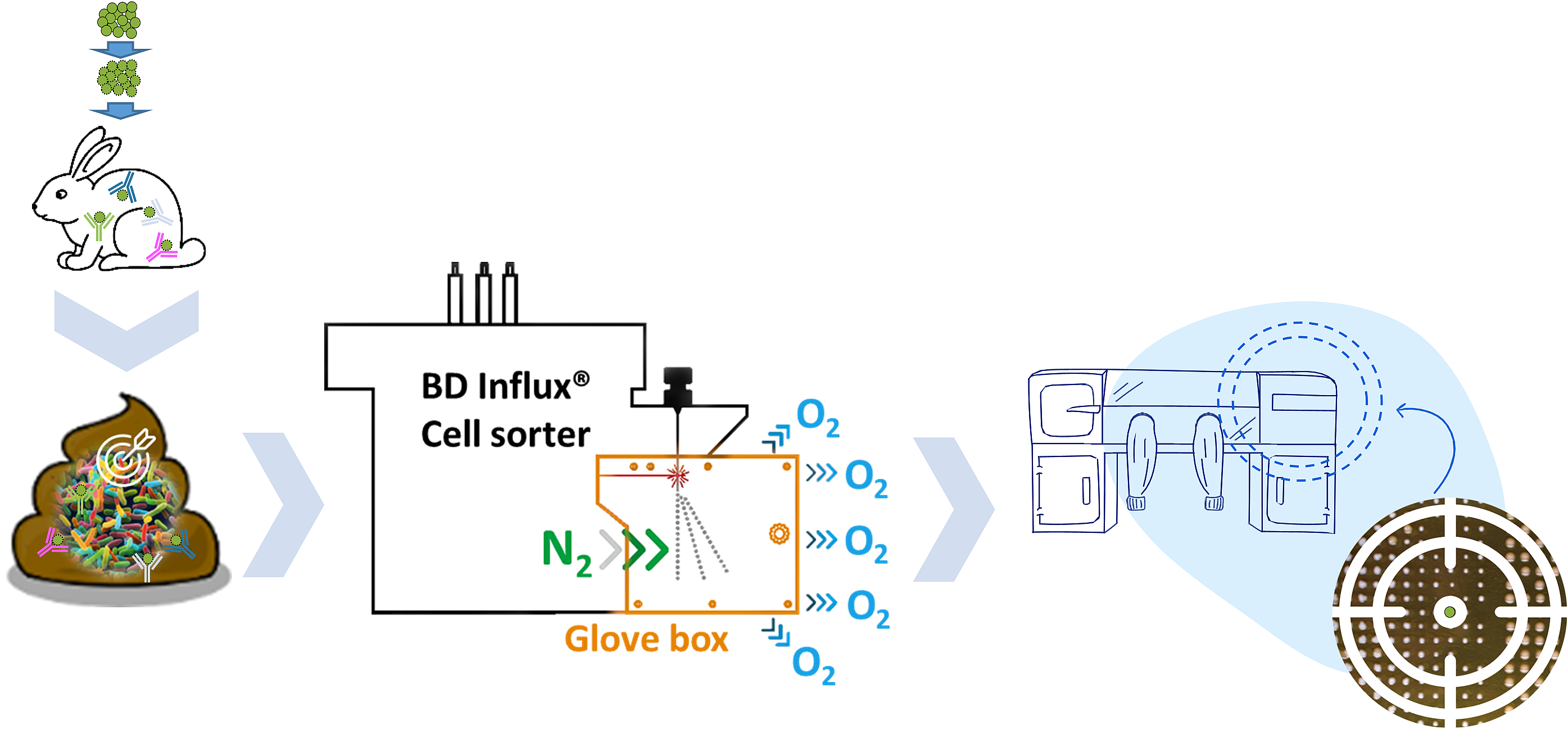Targeted enrichment and culture

Case study
Targeted enrichment and culture
The commensal bacterial species Christensenella minuta is considered as a “keystone” species of the gut microbiota. It has been demonstrated to be highly heritable and to be depleted in several disease conditions including obesity and Inflammatory Bowel Diseases (IBD). YSOPIA chose this species as a Next Generation Probiotic candidate that could be used to compensate for decreased abundancies observed in these diseases.
C. minuta is an anaerobic commensal species that is generally present in very low quantities in the gut microbiota. It is therefore difficult to isolate and to cultivate, and there are only limited numbers of strains available in the collections.
As a result, there is a lack of data comparing the properties of different strains of C. minuta, either from a genomic point of view or for different biological properties assessed through in vitro or in vivo tests.
In this context, YSOPIA needs to establish a proprietary collection of C. minuta strains to be used in the company’s R&D pipeline.
BIOASTER develops specific technologies for the targeted enrichment and culture of commensal bacteria of the intestinal microbiota. These tools allow the rapid establishment of a collection of strains of interest, including Extremely Oxygen Sensitive (EOS) species and/or sub-abundant species in the ecosystem.
A number of labeling methods are used in combination with anaerobic atmosphere cytometry to allow detection, sorting, and culturing of species of interest. Among these methods, the generation of polyclonal antibodies from heat-inactivated bacteria allows the rapid generation of specific enrichment tools. A strategy based on viability staining in conjunction with staining with antibodies directed against C. minuta was developed to enrich and cultivate new C. minuta strains from fecal samples provided by YSOPIA.
Within a few months, the composition of culture media allowing the isolation and growth of C. minuta was improved, and a strategy for specific targeting of C. minuta within the complex microbiota was validated.
This strategy was then used on about 20 fecal samples from healthy volunteers provided by YSOPIA, allowing the isolation of 5 new strains of C. minuta. The strains were biobanked and transferred to YSOPIA which is now using them in its development.
The targeted isolation of bacterial species of interest from complex ecosystems, including anaerobic ones, will benefit from the technologies, tools and know-how developed by BIOASTER. Many polyclonal antibodies targeting species of interest are already available, and others can be developed rapidly if needed.